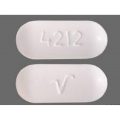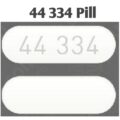Menthol has been used by people since ancient times, but only recently did scientists uncover how it works. It naturally triggers cold-sensitive receptors in the skin to create a cooling, refreshing sensation whether it’s applied to the skin, eaten, or inhaled. The menthol molecule can exist as one of two enantiomers (mirror-image isomers). The naturally occurring material is the levorotatory form (the compound that rotates the plane of polarized light to the left), called (-)-menthol (or l-menthol). Synthetic menthol is racemic, consisting of equal amounts (-)-menthol and (+)-menthol (or d-menthol), the latter being the isomer that rotates the plane of polarized light to the right.
What is menthol used for?
Menthol is largely used as a flavoring or olfactory agent in a variety of products, including cigarettes, liqueurs, cough drops, mouthwashes, toothpaste, and shampoos. Menthol has been used in different medications to relieve symptoms of asthma and rhinitis and is a constituent of cold remedies and ointments designed to be rubbed onto the chest or applied around and even into the nostrils. Applied to the skin, it acts as a rubefacient and counter-irritant, but substantial concentrations of volatile oil can be inhaled from the skin.
Where Does Menthol Come From?
Menthol is a cyclic alcohol obtained from the volatile oils of various species of Mentha. It occurs naturally as levomenthol, and racementhol can be synthesized. It is obtained from peppermint oil or is produced synthetically by hydrogenation of thymol. Peppermint is an aromatic herb in the mint family. It’s a hybrid mint that’s a cross between spearmint and watermint. It can be found naturally in North America and Europe. Peppermint essential oil can be extracted from the leaves of the peppermint plant and is used for a variety of different purposes.
Side Effects
Redness, mild itching, or irritation at the application site may occur. If any of these effects last or get worse, tell your doctor or pharmacist promptly.
If your doctor has directed you to use this medication, remember that he or she has judged that the benefit to you is greater than the risk of side effects. Many people using this medication do not have serious side effects.
Stop using this medication and tell your doctor right away if you have any serious side effects, including: blistering/swelling at the application site, increased/unusual pain at the application site.
A very serious allergic reaction to this drug is rare. However, get medical help right away if you notice any symptoms of a serious allergic reaction, including: rash, itching/swelling (especially of the face/tongue/throat), severe dizziness, trouble breathing.
This is not a complete list of possible side effects. If you notice other effects not listed above, contact your doctor or pharmacist. SEE: Menthol Poisoning: Effects, Signs and Symptoms, Home Care
Precautions
Before using menthol, tell your doctor or pharmacist if you are allergic to menthol; or if you have any other allergies. This product may contain inactive ingredients, which can cause allergic reactions or other problems. Talk to your pharmacist for more details.
Before using this medication, tell your doctor or pharmacist your medical history.
Before having surgery, tell your doctor or dentist about all the products you use (including prescription drugs, nonprescription drugs, and herbal products).
If you are going to have an MRI test, tell testing personnel if you are using this patch. Some patches may contain metals that can cause serious burns during an MRI. Ask your doctor whether you will need to remove your patch before the test and apply a new patch afterward, and how to do so properly.
During pregnancy, this medication should be used only when clearly needed. Discuss the risks and benefits with your doctor.
Interactions
Drug interactions may change how your medications work or increase your risk for serious side effects. This document does not contain all possible drug interactions. Keep a list of all the products you use (including prescription/nonprescription drugs and herbal products) and share it with your doctor and pharmacist. Do not start, stop, or change the dosage of any medicines without your doctor’s approval. SEE: Pros And Cons Of Mouthwash With Alcohol







